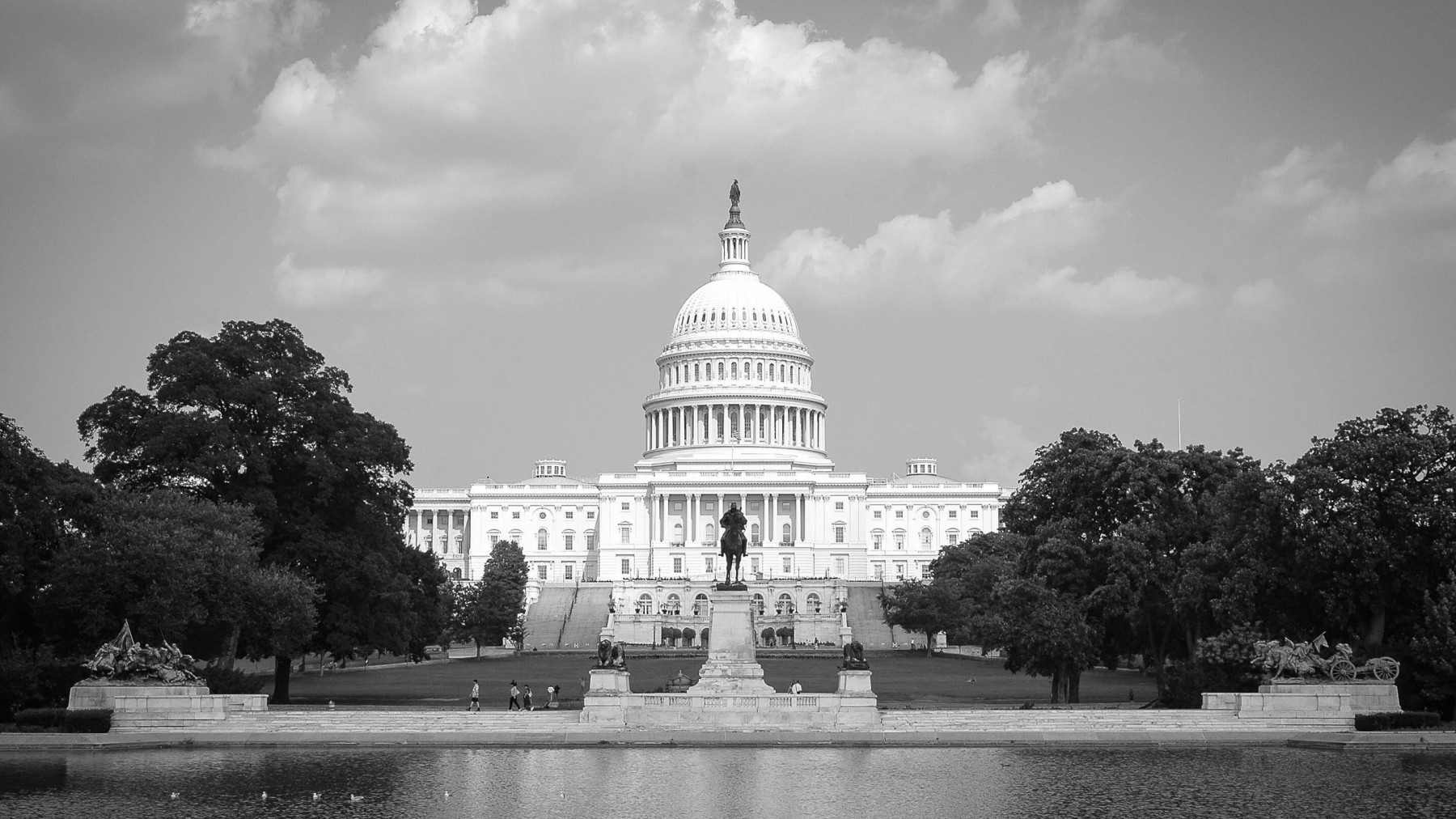What the “One Big Beautiful Bill Act” Can Mean for You
- Financial Planning
- Tax Planning

On July 4, 2025, a major piece of legislation—H.R. 1, also known as the One Big Beautiful Bill Act (OBBBA)—was signed into law, reshaping tax policy for individuals and businesses alike.
This sweeping budget reconciliation package touches nearly every American taxpayer. Whether you’re a high-earning executive, small business owner, working parent, or retiree, there’s something in this bill that will affect your bottom line.
Here’s what you need to know in clear, practical terms. Please note this information is current as of the time of writing but legislation may evolve over time.
Key Individual Tax Updates
- Individual income tax rates introduced initially in the 2017 Tax Cuts and Jobs Act (TCJA) will become permanent. The brackets will adjust for inflation, with the top bracket remaining at 37%. There is also no change to the rules for capital gains. As these rates were set to expire in 2025, this change provides greater certainty for tax planning opportunities.
- The Child Tax Credit permanently increased to $2,200 per child, with the refundable portion of $1,700 indexed to inflation.
- The State and Local Tax (SALT) Deduction cap has been retroactively increased for 2025 from $10,000 to $40,000 for those making less than $500,000. It will increase by 1% annually until 2029, then will revert to the current $10,000 limit in 2030.
- New Senior Deduction up to $6,000 for taxpayers age 65+, phasing out at an adjusted gross income above $75,000 (single)/$150,000 (joint). This deduction is projected to increase the number of Social Security beneficiaries who do not pay federal income taxes from 64% to nearly 90%.
- A Temporary Deduction on Tips or Overtime from 2025 to 2028 will provide relief to individuals in occupations that customarily receive tips. The bill allows individuals to take an above-the-line deduction of up to $25,000 for qualified tip income. Similarly, individuals who receive qualified overtime compensation will be able to take an above-the-line deduction of up to $12,500 for single filers and $25,000 for joint filers. Both deductions phase out at higher incomes of $150,000 for single filers and $300,000 for joint filers.
- The Alternative Minimum Tax (AMT) Exemption permanently extends the exemption amount and reverts the exemption threshold to 2018 levels of $500,000 for single filers and $1 million for joint filers, indexed for inflation. However, the Senate Finance Committee accelerated the phaseout of the exemption from 25% to 50%.
- The Mortgage Interest Deduction cap of $750,000 on primary residences is made permanent, and the bill also permanently prohibits deducting interest on home-equity loans (e.g., HELOCs) used for non-home improvement purposes. Mortgage insurance premiums are only deductible for acquisition-related debt, not for refinances.
- A temporary Auto Loan Interest Deduction up to $10,000/year for U.S.-assembled cars (2025–2028) purchased through 1/1/29 has been added. The interest deduction is also subject to phase-out at income of $200,000 for joint filers and $100,000 for single filers. Note that campers and RVs are excluded.
- Clean Energy Tax Credits have been repealed or eliminated as follows:
- Clean Vehicle Credit of $7,500 eliminated for qualifying vehicles purchased after September 30, 2025.
- The Residential Clean Energy Credit, which provides a tax credit for solar electricity-related expenditures, is set to terminate for purchases made after December 31, 2025.
- There are many other clean energy-related credits that have been repealed as well.
- The bill introduces Trump Accounts, also known as Money Accounts for Growth and Advancement for Children. Please note the details around how the Treasury Department will open and fund accounts are still forthcoming:
- The government is running a pilot program that makes an automatic $1,000 federal contribution at birth for eligible children born between December 31, 2024, and January 1, 2029. The child must have a social security number and be a US Citizen to qualify.
- Parents may contribute up to $5,000/year (indexed for inflation) until the child reaches age 18. Note there is no tax benefit for contributions. Under Section 128, employers may contribute up to $2,500/year, tax-free as a fringe benefit (counts toward the $5,000 per year limit). Additional contributions from federal/state governments and charitable organizations do not count toward the $5,000 limit.
- Withdrawn before the beneficiary turns 18 are not allowed, and must be fully withdrawn by age 30.
- The funds must be invested in a U.S. equity index fund with fees not more than 0.1%.
- A feature of this account is that it is tax-deferred, and when funds are withdrawn, it is taxed at the favorable capital gains tax rate. The funds can be used to pay for college, make a first-time home purchase, or start a business. Any unqualified withdrawals will result in gains taxed at ordinary income tax rates. The original principal can be withdrawn tax-free.
- Note: A 529 plan may still be a more tax-advantaged way to save for college, as withdrawals from a 529 plan for qualified expenses are not subject to taxes.
Deductions & Credits That Stay or Expand
- Standard Deduction: The bill makes the TCJA increases permanent at $15,750 for single filers, $23,625 for heads of household, and $31,500 for married filers, and they will be adjusted for inflation. This also permanently removes the personal exemption. As mentioned above, there is an additional standard deduction of $6,000 for tax filers age 65 and over beginning in 2025 and expiring in 2028.
- Itemized Deductions Cap: A new formula reduces the value of itemized deductions for high-income earners in the 37% tax bracket by capping the tax benefit of itemized deductions at the 35% tax bracket.
- Qualified Business Income (QBI) deduction made permanent at 20%, with expanded thresholds and a $400 minimum deduction for taxpayers with at least $1,000 of QBI. Phase-out amounts increased to $75,000 for single filers and $150,000 for married filers.
- Estate & Gift Tax Exemption increased to $15 million for individuals and $30 million for a married couple, indexed for inflation starting in 2026.
- Child & Dependent Care Credit rate permanently boosted from 35% to 50% for qualifying expenses, with phase-outs for taxpayers with AGI over $15,000. Credit will increase with inflation starting in 2026 but income phase-out limits will not be adjusted for inflation. The refundable credit will remain at $1,700 and increase with inflation.
- Charitable deductions in 2026 will have a floor of 0.5% for taxpayers who itemize. The limitation may make it advantageous to front load charitable gifts or accelerate gifts by funding a donor-advised fund. Non-itemizers may deduct up to $1,000 ($2,000 if filing jointly) in cash donations, effective 2026.
- Casualty loss deductions limited to federally declared disaster areas are made permanent, restricting personal casualty and theft loss deductions to those that occur in a federally declared disaster area, with minimal exceptions to certain state-declared disasters.
Provisions for Business Owners & Business Investments
- Research & Development (R&D) spending is fully preserved for domestic R&D expenses for tax years 2025 through 2029.
- Section 128 was created to allow employers to make tax-free contributions of up to $2,500 per employee to Trump Accounts.
- Employer-Provided Childcare Credit increased to 40% from 20% up to a maximum credit of $500,000 in qualifying expenses (50% and $600,000 for small businesses).
- Section 179 depreciation deduction for qualifying business equipment purchases increased from a maximum of $1.25 million in 2025 to $2.5 million, with the phase-out increasing from $3.13 million to $4 million. This is a significant expansion, allowing businesses with higher equipment investments to immediately expense qualified equipment purchases, thereby reducing their taxable income.
- Qualified Opportunity Zones become permanent, allowing for temporary deferral of capital gains through 2026:
- Step-up in basis of 10% for investments held for more than five years
- Additional step-up of 5% if held for more than seven years
- No capital gains tax if held for 10+ years
The bill also introduces a new Qualified Rural Opportunity Fund (QROF), providing greater tax benefits for investments in rural areas.
- Qualified Small Business Stock (QSBS) gain exclusions under Section 1202 expand. The bill expands the definition of a QSBS from $50 million in gross assets to $75 million. Also, the amount of gains excluded from gross income varies depending on the period the stock is held, as noted below, and is subject to a cap of $15 million (previously $10 million):
- 3 years: 50% exclusion
- 4 years: 75% exclusion
- 5+ years: 100% exclusion
OBBBA Final Thoughts
The One Big Beautiful Bill Act is an extensive piece of legislation that has meaningful tax implications for all taxpayers, which may impact how you plan, save, and invest.
As we move further into the second half of 2025, now is the time to reassess your tax strategy and financial plan with your Quantum advisor to ensure you take advantage of new and expiring opportunities while managing potential risks specific to your situation. As we monitor these changes, our team is available to help you navigate these changes so you may make more informed decisions for your family, business, and future. 1 2 3
DISCLOSURE: Quantum Financial Advisors, LLC is an SEC registered investment adviser. SEC registration does not constitute an endorsement of Quantum Financial Advisors, LLC by the SEC nor does it indicate that Quantum Financial Advisors, LLC has attained a particular level of skill or ability. This material prepared by Quantum Financial Advisors, LLC is for informational purposes only and is accurate as of the date it was prepared. It is not intended to serve as a substitute for personalized investment advice or as a recommendation or solicitation of any particular security, strategy or investment product. Advisory services are only offered to clients or prospective clients where Quantum Financial Advisors, LLC and its representatives are properly licensed or exempt from licensure. No advice may be rendered by Quantum Financial Advisors, LLC unless a client service agreement is in place. This material is not intended to serve as personalized tax, legal, and/or investment advice since the availability and effectiveness of any strategy is dependent upon your individual facts and circumstances. Quantum Financial Advisors, LLC is not an accounting or legal firm. Please consult with your tax and/or legal professional regarding your specific tax and/or legal situation when determining if any of the mentioned strategies are right for you.
Please Note: Quantum does not make any representations or warranties as to the accuracy, timeliness, suitability, and completeness, or relevance of any information prepared by an unaffiliated third party, whether linked to Quantum’s website or blog or incorporated herein, and takes no responsibility for any such content. All such information is provided solely for convenience purposes only and all users thereof should be guided accordingly.
For more information about Quantum and this article, please read these important disclosures.
- Financial Planning
- Tax Planning
John Eing, CPA, MBA, CFP®
John Eing is the Chief Strategy Officer of Quantum Financial Advisors, LLC. John is also a Financial Advisor directly to clients and a founding partner of the firm.
Read More









